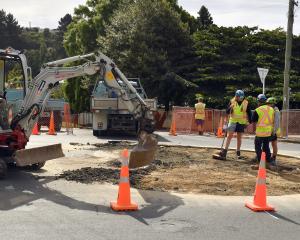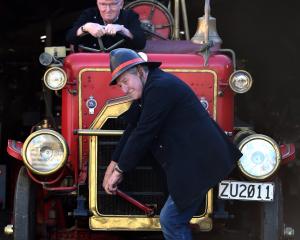Mr Vickers is the widower of Lecretia Seales, a Wellington lawyer who challenged the Crown in the High Court on her right to choose how she died.
Ms Seales was diagnosed with a brain tumour in 2011, and despite treatment died last year.
Earlier in the year, she put a case to the High Court to challenge New Zealand law for her right to die with the assistance of her doctor, asking for a declaration the doctor would not risk conviction.
Her call was declined.
Mr Vickers told the conference his wife spent the last days of her life seeking control over the last stage of her life.
He had been wanting to "speak to New Zealand doctors and nurses for some time''.
He believed anyone facing "intolerable suffering'' should have the option of assisted dying.
Countries in Europe, including Belgium and the Netherlands, and states of the United States, including Oregon, already had assisted-dying laws.
The issue was now being discussed in New Zealand, something he thought was "a wonderful thing''.
Some people ended up with a choice between suicide "and a long painful death''.
Mr Vickers said between 5% and 8% of suicides were people with terminal illnesses, "people from loving families who shoot themselves or walk off cliffs''.
Palliative care, like medicine generally, was "not perfect''.
In countries and states where laws were in place, it meant "not more people dying, just fewer people suffering''.
Act Party leader David Seymour has submitted a member's Bill calling for a debate on euthanasia.
"In one way or another this debate is going to find its way to the House of Representatives,'' Mr Vickers said.
He told the conference places with assisted-dying laws had not found a rush of people keen to use them, as "people don't want to die''.
Instead, they gave people options, which sometimes extended life by taking away the fear of a painful death.
Such laws also took away more hidden aspects of end-of-life care by doctors who helped patients die with drugs.
That situation was "much more murky'' in New Zealand.
Mr Vickers received extended applause for his speech.












